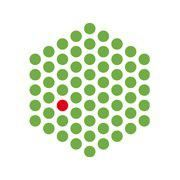 CABANA Workshop: NGS analysis applied to virome sequencing in agricultural systems
CABANA Workshop: NGS analysis applied to virome sequencing in agricultural systems
Date: 24 February - 4 March 2020
Virome sequencing is a high throughput method to identify and classify communities of viruses, not only in plants but also animals and humans. We will focus on the sequencing of small-interfering RNAs (siRNAs) to discover the virus population in plant samples. The resulting information analysis relies on viral databases that are constantly evolving, and software tools constantly being updated. Therefore, we will explore all of these aspects in this workshop.
The workshop will consist of two modules: i) a wet bench workshop for training around the experimental design and DNA library preparation, and ii) a bioinformatics module overviewing multiple applications of Virome Sequencing, and its application in agricultural systems. People interested in this workshop may apply for both modules (limited to 10 participants) or only for the bioinformatics module (limited to 25 participants). Selection of participants will be based on application form.
The bioinformatics module includes a pipeline for detailed computational analysis of virome data; including genomic analysis tools such as Virus-DetectW, phylogenetic and recombination analysis with MegaX and RDP and network analysis using the statistical package R. Also, publicly available resources for virus analysis and their application will be implemented during the workshop.
The detection of pathogens is an essential task for people working on agricultural systems. In recent years the use of sequencing technologies has enabled the discovery and description of new viruses, even communities of pathogenic entities within crops, for example potato and sweet potato. This is relevant for surveillance and to develop strategies to control these pathogens across borders.
Keywords: CABANA
Venue: University of Costa Rica (UCR) Ciudad universitaria Rodrigo Facio Brenes
Region: San José
Country: Costa Rica
Target audience: This course is aimed at wet-lab researchers at any career stage within Latin America undertaking pathogen population genetics and surveillance, interested in applying next generation sequencing to virus identification. Those working in plant protection organizations and/or academia are welcome to apply, and priority will be given to those who have not yet attended a CABANA workshop. Please note this course will be taught in English, however the trainers are fluent in Spanish, and can offer language support where feasible. A number of travel fellowships are available for this course - early-stage researchers and researchers from underrepresented groups are especially encouraged to apply for CABANA travel fellowships. You can apply for travel fellowships via the course application form. Priority will be given to those who have not previously been awarded a CABANA fellowship. Knowledge in R and NGS technologies is required. Therefore, these free resources should be studied beforehand: Basic R concept tutorials: www.r-tutor.com/r-introduction https://r4ds.had.co.nz/tidy-data.html Learning outcomes
Capacity: 10
Activity log

 EMBL-EBI
EMBL-EBI
